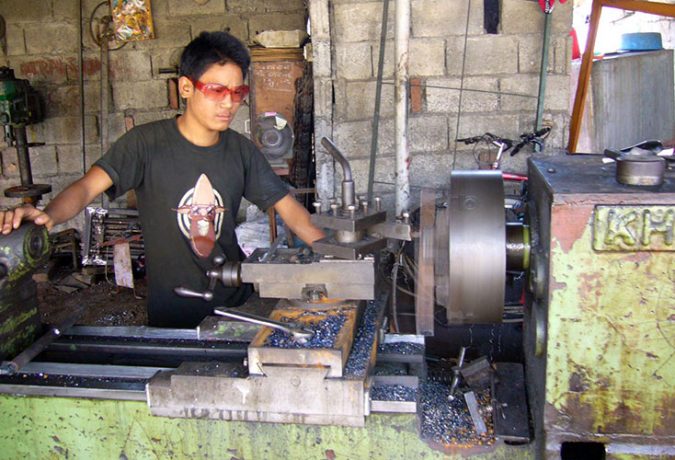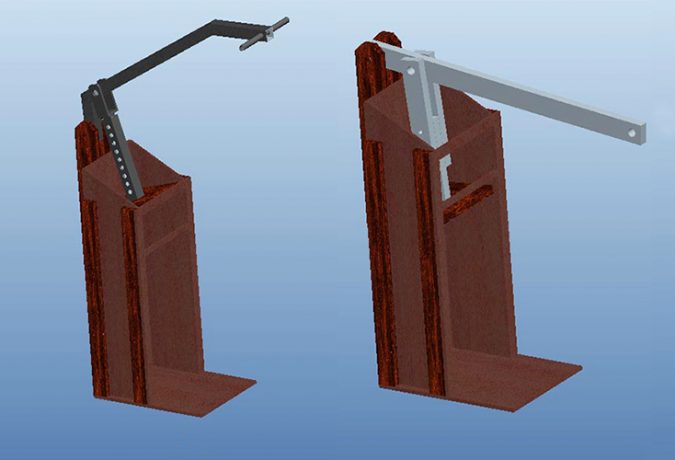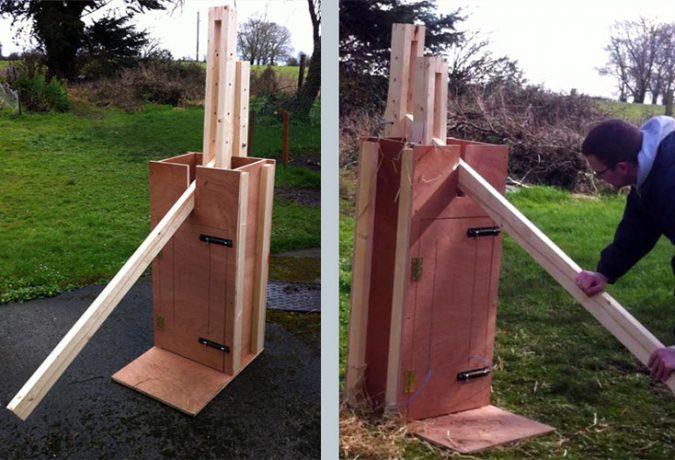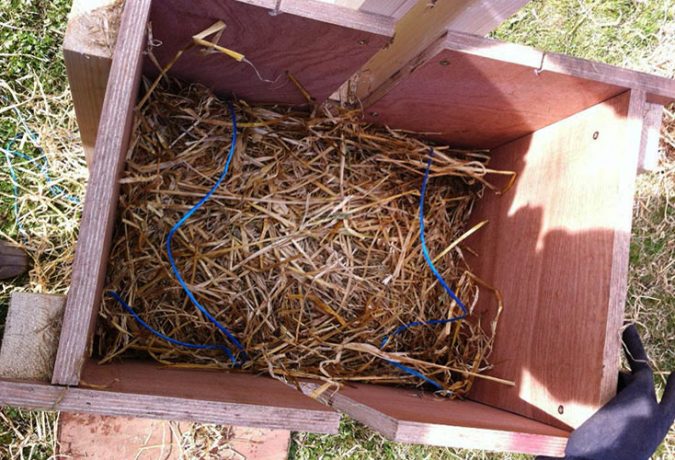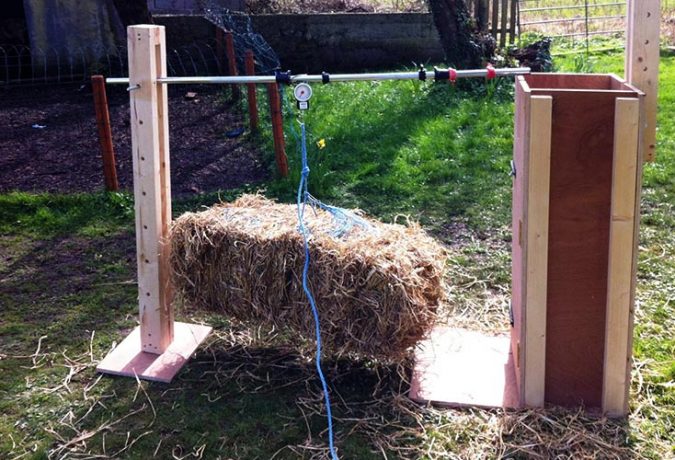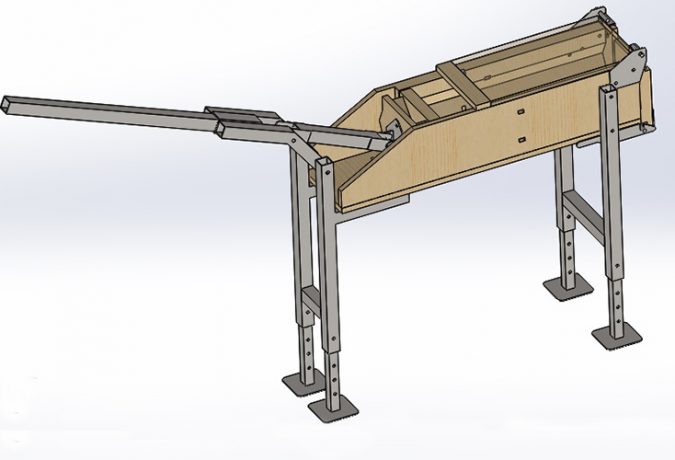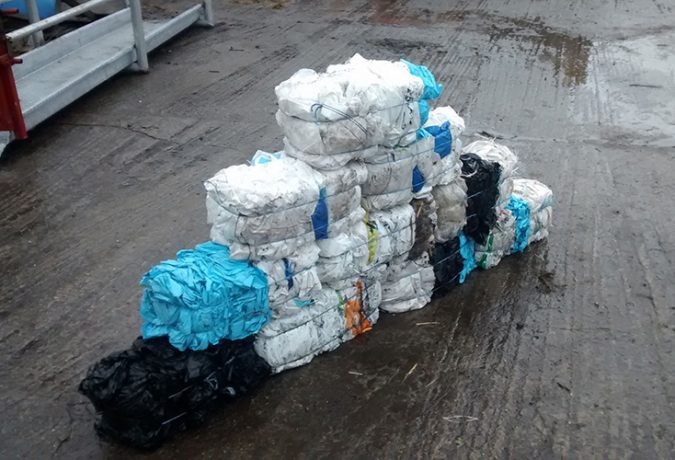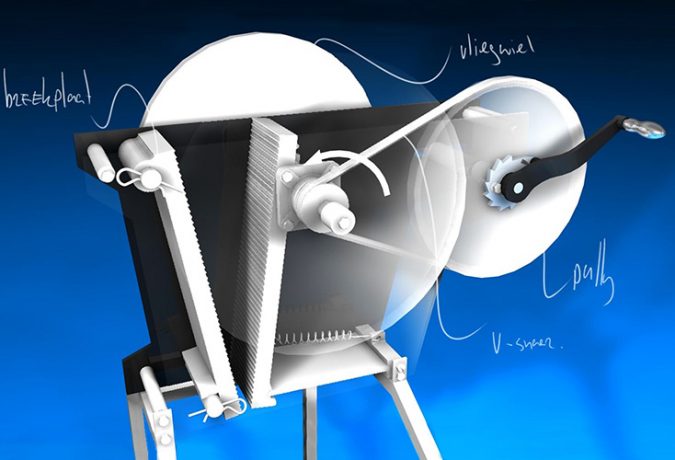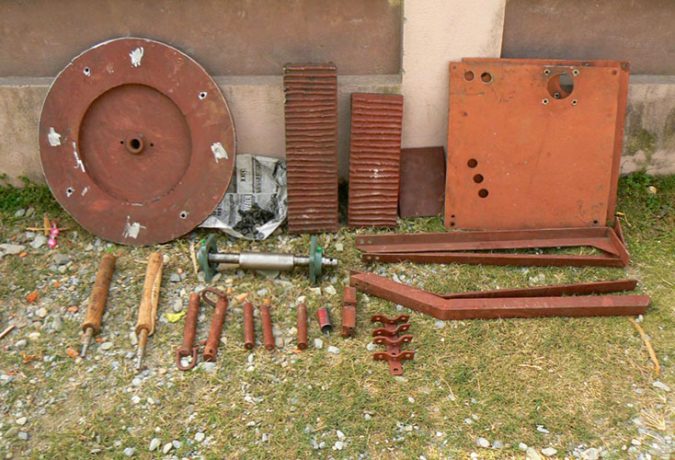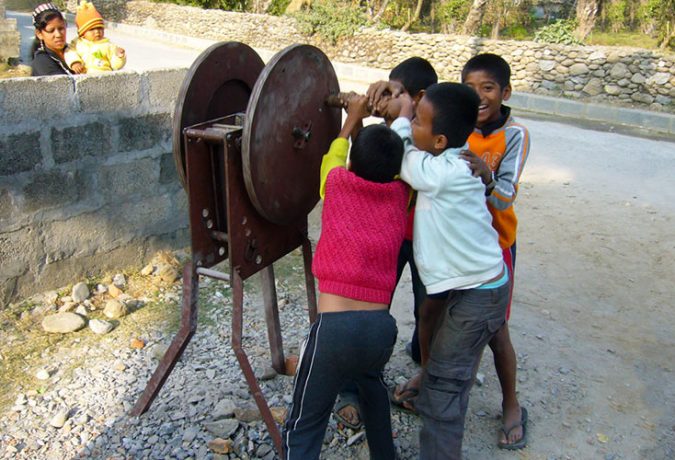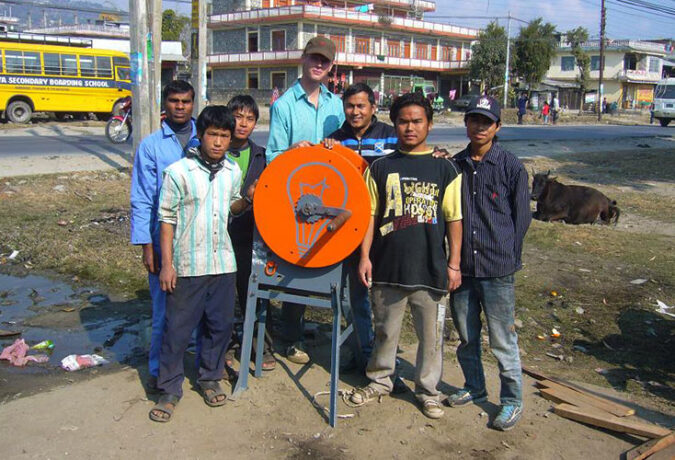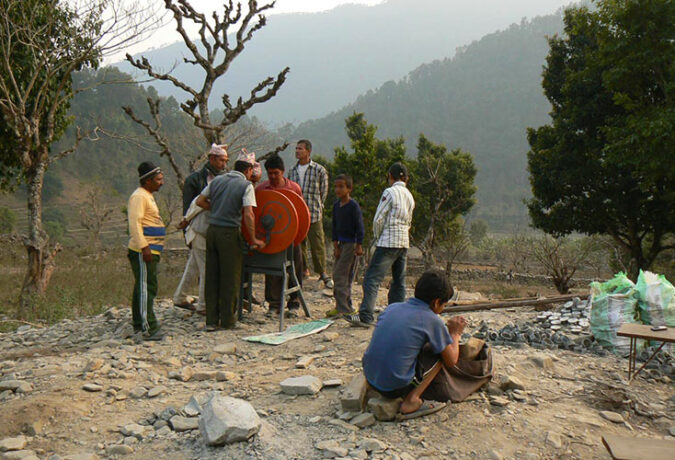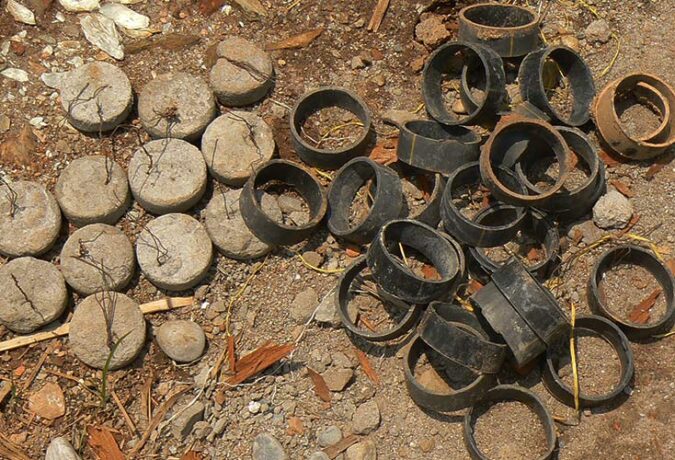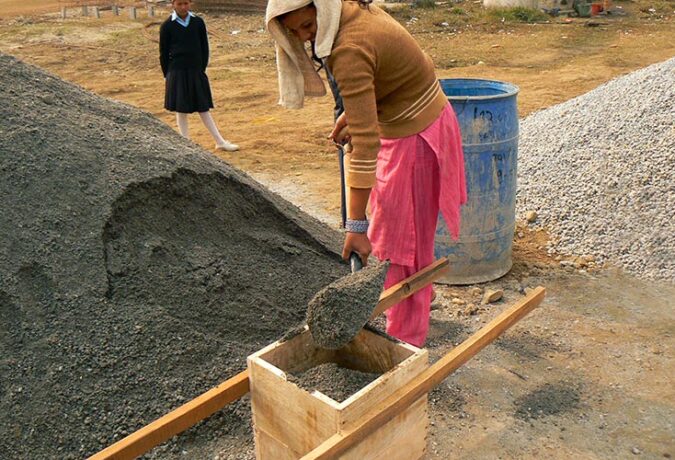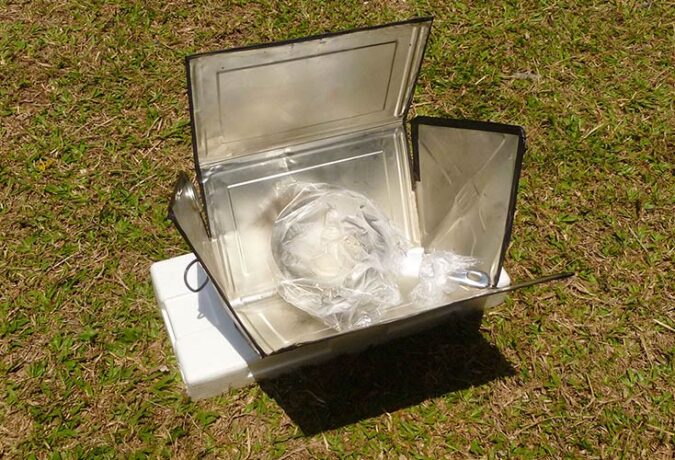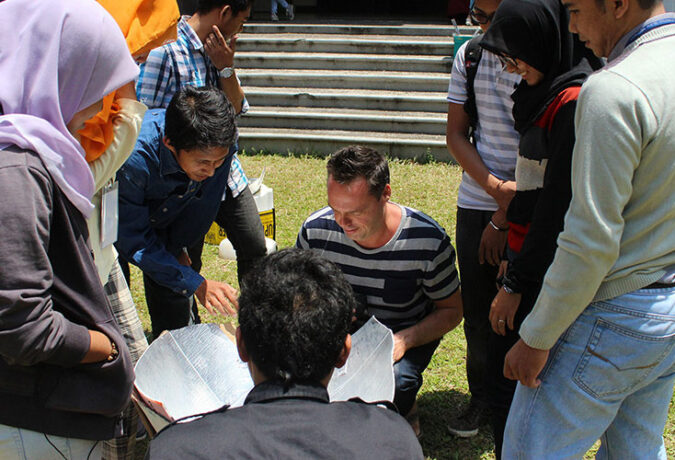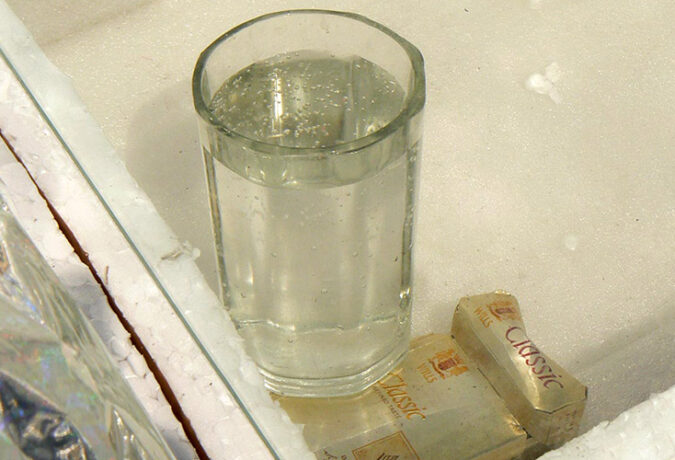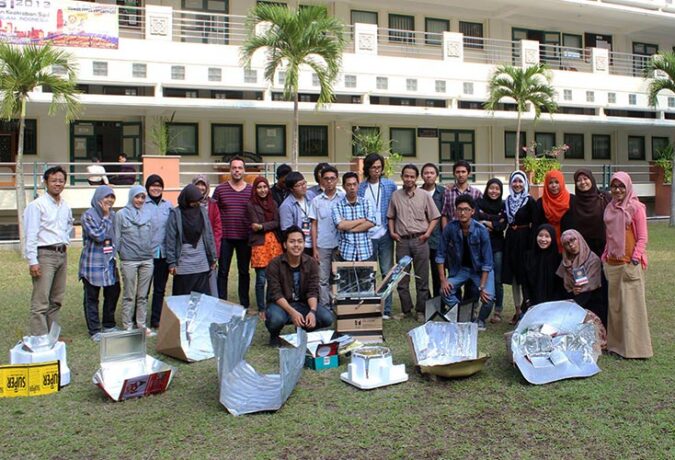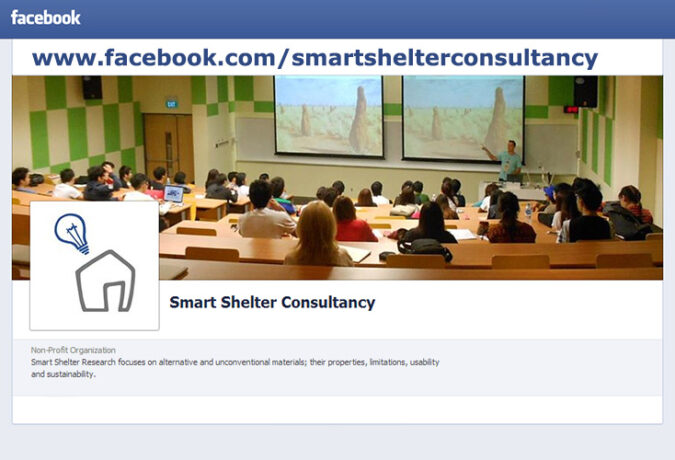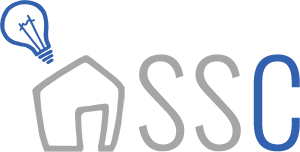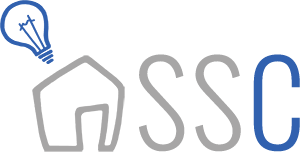Hands-on Workshop: Design to Improve Life
Description of Workshop
| Topics: | design for the bottom of the pyramid, passive energy, social design, low-cost & low-tech engineering |
| Disciplines: | product design, mechanical engineering |
| Type: | hands-on experiments with few lectures |
| Hands-on: | making a solar cooker, making proto-types |
| Field Trip: | possible |
| Duration: | 1 week + 1 day, easy to extend |
| Combinations: | the art of upcycling |
Design to Improve Life – Improving the overall construction quality in developing countries.
To achieve this, we focus on two key factors. Firstly on the people, by training the local carpenters and masons in the basics of building techniques and proper material handling. The second focus is on developing and improving the equipment they are using.
This workshop aims for that second factor; the equipment. The students will develop concepts and make preliminary designs for a whole range of products, tools and machinery, to assist the builders in their work. The solutions should preferably run without the use of electricity or petrol, may not release toxics or fumes into the environment, and must be easy to maintain and repair.
The students are asked to investigate different production stages, such as separating, washing, grinding, shredding, heating, molding, compressing and finishing. Every sequence includes conceptual thinking, material research, designing of viable products, studying of mechanics, conceptual designing of machinery, model making, sample testing and marketing of the end products.
Depending on the discipline of the students and the available time, we can either emphasize on making building related products (Product Design), or on the machines to produce such elements (Mechanical Engineering). Just let us know what your main interest is, and we will adjust the program to make it most suitable for your students.
Aims and Outcomes
We aim to develop building elements that can be made from alternative materials such as waste plastics, agricultural fibers and rubble. At the same time we are looking for easy to handle equipment to make these products, for instance block makers, straw balers, plastic shredders and so on.
By subjecting the students to unconventional parameters in unknown contexts, they will be challenged to think out-of-the-box and search for different sources and resources. This will contribute to strong and sensible conceptual designs, which can be converted into useful products, tools, machines and equipment.
Proposed Lectures and Timetable (example)
#1. Introduction about the work of Smart Shelter Foundation and explanation of the design assignments to the participants. (20 minutes)
#2. T-Shelters and Semi-Permanent Housing; What can we offer to people in post-disaster areas, when there is minimal finance available for reconstruction and livelihoods? (30 minutes)
#3. Mechanical Engineering to Improve Construction Practices; designing simple tools and machines, such as block presses and stone crushers. (45 minutes)
#4. Case Study; Building a school in India with Earth Blocks; Complete story from design phase, to making blocks with a simple block press and doing masonry in a small village. (1 hour 15 minutes)
#5. Product Design for the Bottom of the Pyramid; improving the lives of people by designing simple devices for lighting, energy, cooking and such. It includes the building of a small solar cooker completely out of with campus waste. (1 full day)
#6. Waste wide Architecture; Inspiring examples from all over the world, of designers and architects that use secondary materials in their work. (2 x 45 minutes)
#7. Closedown; future projects of Smart Shelter Research. (20 minutes)
| Morning Program | Afternoon Program | |
|---|---|---|
| Day 1 | #1 Opening + spaghetti challenge #2 Semi-permanent housing |
#3 M.E. to improve building practices Start design brief |
| Day 2 | #4 Case study India Work on design brief |
Work on design brief |
| Day 3 | #5 Product design for the BoP + Solar cooker assignment |
Solar cooker assignment |
| Day 4 | #6 Wastewide architecture + Test solar cookers |
Work on design brief, sketches and proto-types |
| Day 5 | Finalize design brief, sketches and proto-types |
Final presentations of all work #7 Close down |
Possible Extensions and Combinations
As this workshop format is quite intense, we encourage you to consider an extension of the program with one more week. This can easily be done by adding elements of the following formats:
- Hands-on experience; The Art of Upcycling (click here)
If you would like us to make a custom-made proposal, please send us a request by filling in the contact form.
